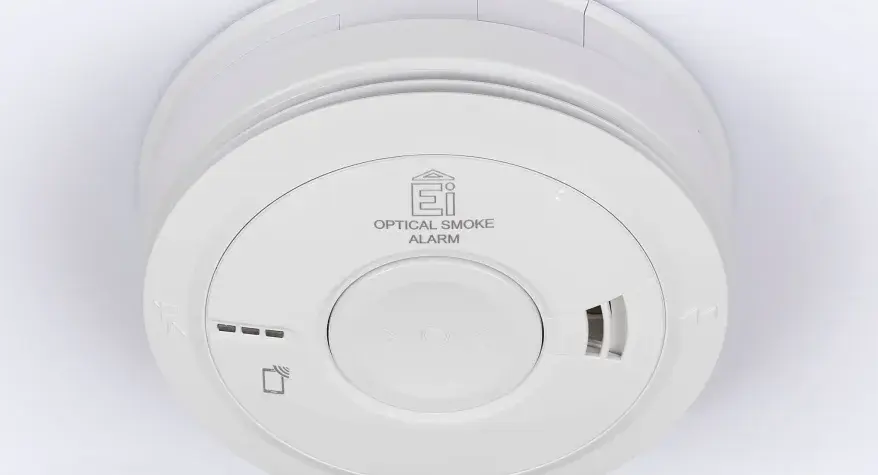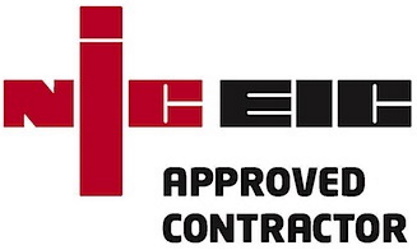A Guide to Aico Domestic Smoke Alarm Installation in Scotland: Complying with Scottish Government Legislation
Smoke Alarm Installation - Gault Electrical Solutions, Alloa
In Scotland, the standards for fire and smoke alarms in homes were updated to improve safety and ensure all properties have adequate fire detection systems. The new legislation, which came into effect in February 2022, applies to all homes, both rented and owner-occupied. One of the most trusted brands for domestic smoke alarms in the UK is Aico, known for its reliable, high-quality alarms. As such we are qualified Expert Installers for Aico and they are the only domestic smoke alarms that we supply and fit.
This guide will provide you with the steps to ensure your Aico smoke alarms are in compliance with the Scottish Government's legislation, ensuring your home is safe and up to standard.
Understanding Scottish Smoke Alarm Legislation
The Scottish Government’s new regulations require the following alarm setup in all homes:
- One smoke alarm in the living room (or the room most used by the occupants).
- One smoke alarm in every hallway or landing on each level of the property.
- One heat alarm in the kitchen.
- All alarms must be interlinked, meaning when one alarm sounds, they all sound.
- Where there is a carbon-fuelled appliance (like a boiler or fire) or a flue, a carbon monoxide (CO) detector must also be installed in the room. This does not need to be interlinked with the other alarms.
These rules ensure early detection of fires, providing occupants with more time to evacuate and improving overall home safety.
Choosing Aico Alarms for Compliance
Aico offers a wide range of interlinked smoke, heat, and carbon monoxide alarms that meet the latest Scottish standards. When selecting alarms, consider the following types:
- Aico Optical Smoke Alarm for hallways and living rooms.
- Aico Heat Alarm for kitchens.
- Aico Carbon Monoxide Alarm for areas with carbon-fuelled appliances.
All Aico alarms are interlinkable, either through hardwiring or wireless connection using the Aico RadioLINK+ technology.
Installing Smoke and Heat Alarms
Placement of Alarms
The placement of smoke and heat alarms is crucial for effective fire detection:
- Living Room (Smoke Alarm): This should be installed on the ceiling. Avoid placing it near vents, windows, or doors, as drafts may affect performance.
- Hallways/Landings (Smoke Alarm): Install one on the ceiling of each hallway or landing. If the hallway is long, you may need additional alarms to cover the area, consideration should be taken to ensure alarms located within a certain distance to bedrooms.
- Kitchen (Heat Alarm): Install the heat alarm on the ceiling, heat alarms in kitchens help prevent false alarms from regular cooking activities.
Interlinking Smoke Alarms
The Scottish Government requires that all alarms be interlinked so that if one detects a fire, all alarms in the home will sound. Aico alarms can be interlinked in two ways:
Hardwired Interlinking
Hardwiring interlinks the alarms through the building's electrical system.
- Wiring: Install the appropriate interconnect wiring between all alarms. This requires a qualified electrician to ensure the alarms are properly connected and comply with safety standards.
Wireless Interlinking (RadioLINK+)
A simpler option is to use Aico’s RadioLINK+ system, which allows alarms to communicate wirelessly.
- Install RadioLINK+ Module: For wireless interlinking, insert the RadioLINK+ module into each alarm. This module allows the alarms to communicate without the need for additional wiring.
- Link the Alarms: Follow the Aico user guide to program the alarms to communicate with one another. Typically, this involves pressing the "house code" button on one alarm, which will then trigger all other alarms to link.
Wireless interlinking is ideal for existing homes, as it avoids the need for extensive rewiring.
Installing Carbon Monoxide Alarms
In any room where there is a carbon-fuelled appliance, such as a gas boiler, stove, or open fire, a carbon monoxide detector must be installed.
- Aico CO Alarm is a good option for detecting dangerous CO levels. The placement should be in the same room as the carbon-fuelled appliance, mounted on the wall at a height between 1.5 and 3 meters, avoiding corners and areas with poor air circulation.
CO alarms do not need to be interlinked with the smoke and heat alarms.
Testing and Maintenance
After installing the Aico alarms, it’s crucial to test and maintain them regularly:
Testing the Alarms
- Test each alarm at least once a month by pressing the test button. When one alarm is tested, all interlinked alarms should sound.
- For RadioLINK+ systems, you can use the Aico Control Switch to test, silence, or locate the alarm that has been triggered.
Maintaining the Alarms
- Replace batteries (for battery-operated or backup battery alarms) when needed. Some Aico alarms come with sealed 10-year lithium batteries that don’t require replacement.
- Clean the alarms regularly by vacuuming the vents to remove dust and debris that can affect their performance.
- Replace alarms every 10 years: Smoke and heat alarms have a limited lifespan, usually around 10 years, after which they should be replaced
The Role of a Qualified Electrician
While many Aico alarms can be installed by competent DIYers, it is recommended to use a qualified electrician for the following reasons:
- Compliance with Regulations: A professional ensures that the installation complies with the latest Scottish regulations.
- Hardwired Installations: If you are installing hardwired alarms, an electrician will ensure the correct wiring and safe installation.
- Peace of Mind: A certified electrician can issue a safety certificate, proving that your alarm system is properly installed and functional.
Gault Electrical Solutions Ltd are registered with NICEIC, the UK’s leading accrediting body that maintain standards in electrical work.
Smoke Alarm Installation in Alloa
Complying with the Scottish Government's smoke alarm legislation is essential for the safety of your home and family. Aico alarms offer a reliable and high-quality solution for meeting these standards, ensuring your home is equipped with interlinked smoke, heat, and carbon monoxide alarms. Whether you opt for hardwired or wireless systems, following the correct installation procedures and ensuring ongoing maintenance will provide long-term safety and peace of mind.
Always consult with a qualified electrician to ensure your system is installed correctly and in full compliance with the law.
Contact us today to arrange your smoke alarm installation



